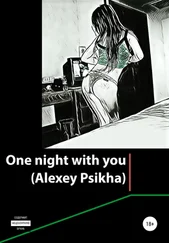IT WAS BECAUSE OF BERNE’S FATHER THAT, when we were dating, half the time he said he didn’t want any children. Children just keep people together who shouldn’t be together, he said. The other half of the time he said he wanted children because children are the best part of love. “Not sex?” I said. I was just joking, of course, but he got all serious. “I have two rules,” he said. “One is to honor and love, and the other is to keep procreation sacred.”
I have only one rule, and that’s that I refuse to have only one child. Only children like Berne and Dave end up with this idea that everything their parents do is because of them. Children with brothers and sisters, like me and Sarah, have it better. We learn to talk, to joke, to watch as power shifts, to spare the feelings of others, to wait and see.
There are many examples, but I can only think of one now. When I was about eight, and Sarah was about ten, our daddy lost his job in the post office. For about six weeks, he was at home, and he was driving everybody crazy, rearranging the items in the kitchen, polishing things he’d never looked at before, let alone polished. The main thing he did was ask us to play catch in the yard. Every hour of every day it seemed like he wanted to play catch: to go outside and toss a tennis ball back and forth. He said it soothed him. For some funny reason, he wanted only one of us out there at a time. Probably because it doubled the amount of time he could spend playing catch. One day, Sarah was out there for about an hour, and then she ran in and took a popsicle out of the freezer. “I’m not going back out,” she said. “You go.” She sat there sucking on the popsicle, and when I asked her if that was more important than our daddy’s feelings, she shrugged. “It’s hot out there,” she said. “And I can’t make him feel better. He thinks I can, but I can’t.”
I didn’t want to go outside either, so I didn’t. After about twenty minutes, our daddy still hadn’t come inside, and my mom told me I had better go out and see what was keeping Frank. She always called him Frank, even to me. I went to the yard and found him sitting on the back stairs, bouncing the tennis ball between his knees. “You ready?” he said.
I shook my head. “Just coming to see what’s keeping you.”
“God damn,” he said, and threw the ball over the back fence, as far as it could go.
SARAH AND I WERE CLOSE. She was only two years older, which meant that all the things that happened to me were fresh in her memory. Getting your period, kissing, going to second base, but also other stuff, like how to dress on your first day in school, and how to hold a cigarette so that you didn’t look like you were imitating someone from the movies. She was always a little louder than me and a little wilder. When she was sixteen, she was going with this boy and she got pregnant, and she had one of her friends drive her down south of Lincoln for an abortion. She made me promise not to tell our mom or dad, and I didn’t. After that she was afraid that she couldn’t get pregnant again, and maybe she was right, because she didn’t from the next guy, whom she went with for two years, and she didn’t with the guy after that, whom she lived with for a year, and she didn’t with Ed. Right at the beginning of her time with Ed, our dad died when he had a stroke while driving, and for a few weeks we talked every day on the telephone. Our mother was sick by then, too, with lung cancer, and she was in and out of the hospital. I hope she goes soon, Sarah said. She needs to be with Frank. That was the other thing about only children: when parents passed, there was no one who felt the same exact things you were feeling.
WHEN DAVE CAME TO LIVE in the barn, he told me he was going to start a new life. “No more drinking,” he said, “and no more girls.”
“Good,” I said. “We can begin our new lives together.” He broke both rules the first week — I saw a small box of empty bottles stacked against the wall, and once I knocked on the barn door and heard noise inside, but no one answered.
When I asked him about it, he denied that there were any girls. “I told you,” he said. “I have a new life now.” He was propped up on pillows on a narrow board he used as his bed, sketching with a piece of charcoal.
“What are you drawing?” I said.
“Pictures of the things I can’t do anymore,” he said.
I didn’t care what kind of rules he broke. What did I care? Berne was less generous. He grumbled about Dave: Why would we let a man like that into our home, especially when we were trying to begin our own life together? I could see him getting angrier and angrier, but it wasn’t like Berne to do anything other than grumble. Finally, he asked me flat-out if there had ever been anything between me and Dave, and I said absolutely not, and he asked me if I was telling him the truth, and I just stared at him like he was crazy.
Sarah asked me why I didn’t tell Berne the truth. “Because he wouldn’t understand,” I said.
“I guess not,” she said. “Who would understand that a nice girl like you ever had a thing for that dirty little drunk?”
“Are you still thinking of moving?” I asked Sarah. Ever since she caught the bouquet she’d been telling me she needed to get out of town. On weekends she went to Lincoln; she was seeing a guy there sometimes.
“I don’t know,” she said. “This town isn’t doing much for me. I have a little money from selling the hardware store. I am seriously thinking about getting out of here.”
“Would you go to Lincoln?” I said.
“I don’t know,” she said again. “The problem with this guy is that he wants a family.”
“Don’t you want kids?”
“If I can have them.”
“You can.”
“Are you a doctor?” she said.
“Yes,” I said.
FOR A LONG TIME, Berne and I weren’t getting pregnant either. He thought it made me sad, and he bought me lots of presents: another necklace (this one had a cross), another scarf (this one was blue), another hat (it looked just like the first). I didn’t like the necklace or the hat, but I loved the scarf. I wore it all the time, and even Sarah agreed that it looked like a dream on me. But then I lost it. Berne never seemed to notice, and I certainly didn’t mention it. Then I got pregnant, and it didn’t seem to matter anymore. Berne told me that the baby was a girl, that he was sure of it.
“I want to name her Laurel,” he said, “after my father’s mother. If it’s a boy, I don’t have any ideas.”
ONE DAY IN WINTER, I was out in town, getting some things for the house, and I came home to find a note from Dave on the counter: it was folded up and tucked inside an envelope, though the envelope wasn’t sealed. It said he couldn’t stay anymore. It thanked me for my generosity. It told me that we would always be special to each other, even without Ed, even without the hardware store. It said that there was a painting in the barn for me, the portrait of the woman that Sarah and I liked so much. It didn’t mention Berne.
I went out to the barn. Even before I got there, I knew that there was someone inside. “Dave,” I said. “What’s with this note?”
But it wasn’t Dave. It was Berne. He was standing over Dave’s bed, looking down on what was left there, the twisted bedsheets and the portrait of the woman Dave had known in Lincoln. As I came through the door, Berne turned and made a blue fist at me. I say a blue fist because that’s what it looked like. It was actually his normal-colored fist, but it was wrapped inside a blue scarf. “What is this?” he said.
“It looks like my scarf,” I said.
“I thought you lost that scarf,” he said.
“Yes,” I said. “I thought so, too. Where did you find it?”
Читать дальше












